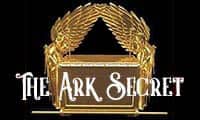Tech Student Creates AI Productivity Calendar

Kinjal Pandey, an international student at Virginia Tech majoring in Computer Science with a Math minor, is set to graduate in an astonishing 2.5 years—without using any high school transfer credits. With a GPA of 3.6 and a scholarship under her belt, Kinjal has balanced a rigorous academic load with numerous extracurriculars and a groundbreaking AI project designed to optimize productivity for students.
From Overload to Insight: A Need for Better Scheduling
As a student who took full advantage of the opportunities at Virginia Tech, Kinjal often found herself juggling a packed schedule—internships, leadership roles in clubs, attending campus events, and keeping up with academic responsibilities.
“I was grateful for all the opportunities Virginia Tech offers,” Kinjal reflects. “But fitting everything into my schedule made me realize there had to be a better way to manage time.”
Her experiences in key courses, such as Professionalism in Computing, Human-Computer Interaction, and the Creative Computing Studio, opened her eyes to how Computer Science skills could be applied to real-world problems. It was in these classes that Kinjal realized that solving practical challenges, like time management, was an integral part of her education.
“I learned that Computer Science isn’t just about coding assignments,” she explains. “It’s about using what you’ve learned to create tools that solve everyday problems.”
Developing the AI Calendar: A Practical Solution
This realization led to the development of an AI-powered calendar app designed to optimize users’ schedules. The app integrates with platforms like Canvas to automatically pull in deadlines and uses machine learning algorithms to prioritize and adjust tasks in real time, adapting to changing circumstances.
“Classes at Virginia Tech, especially those focused on creative problem-solving, gave me the foundation I needed to build this tool,” Kinjal says. “It’s designed to help students manage their time better, without feeling overwhelmed.”
What began as a personal project has now drawn attention from potential investors. While still in the development phase, the AI calendar app has garnered interest, with soft commitments from angel investors, suggesting that this student-led initiative could have a future beyond the university.
From Classroom to Startup Potential
Kinjal’s journey reflects how Virginia Tech’s curriculum encourages students to apply their knowledge beyond the classroom. Rather than just focusing on coding for assignments, her courses emphasized using technology to address real-world challenges—an approach that guided the creation of her AI calendar.
“The support from professors and the learning environment at Virginia Tech made this possible,” Kinjal says. “The project started because I needed a solution, but now it’s grown into something that could help a lot of people.”
With potential investment and a supportive community, Kinjal’s AI calendar project may evolve into a full-fledged startup—a reflection of how practical education can lead to innovative solutions that extend beyond the university campus.









